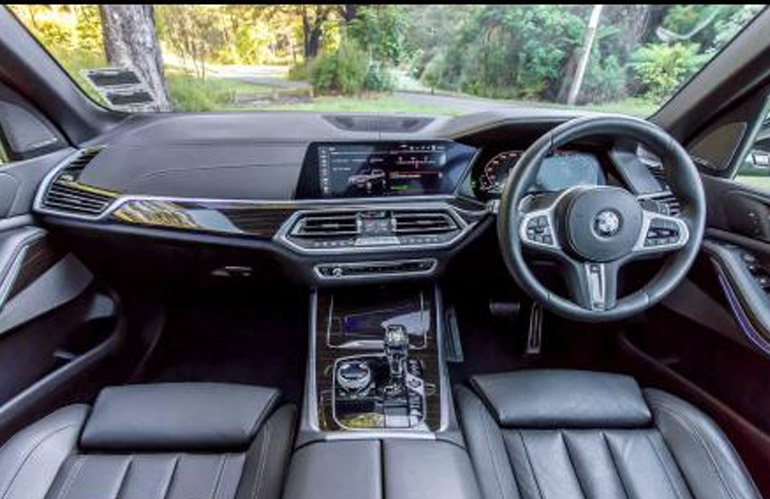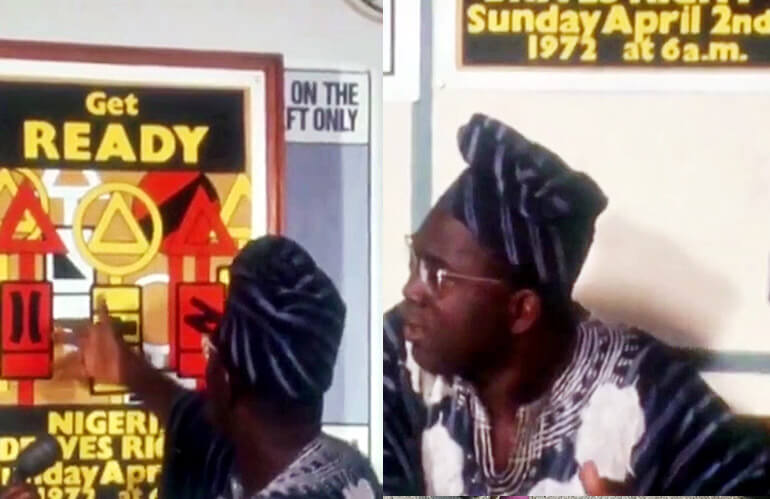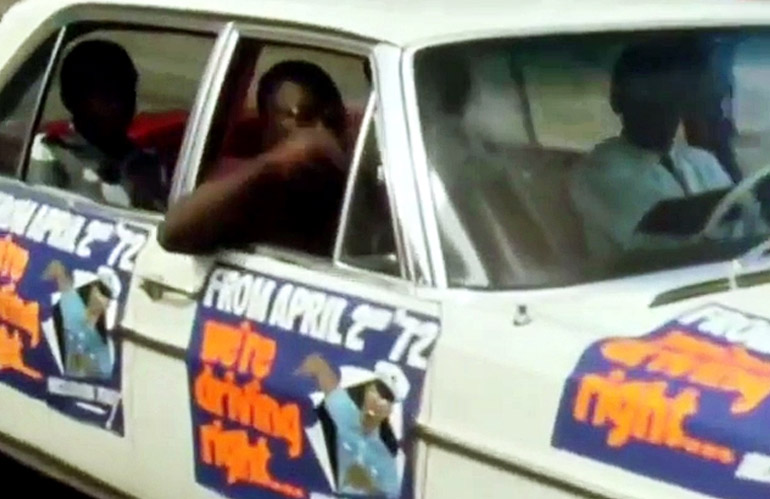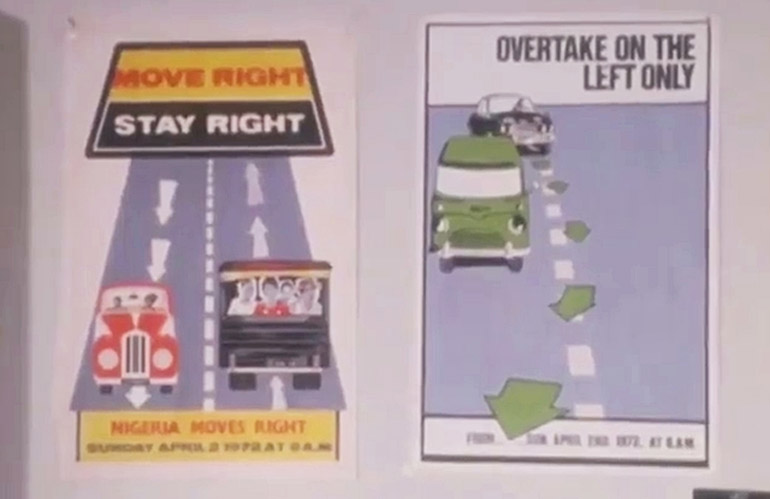On Sunday, April 2, 1972, Nigeria ditched the British-styled right-hand drive for the left-hand drive common among the French, German, and Americans. The terms right and left-hand drive refers to the position of the driver in the vehicle and are the reverse of the terms right and left-hand traffic. Major-General Yakubu Gowon was the country’s Head of State at the time. But why did the government part ways with the British system of driving by changing from the Right-Hand to the Left-Hand Drive?
Table of Contents
Origin of the Right-Hand Drive

In time past, almost everyone travelled on the left side of the road because that was the most sensible option for primitive societies. Howbeit, most people were right-handed and swordsmen preferred to keep to the left in order to have their right arm nearer to an opponent and their scabbard further from them.
Have 1 million naira and above to Buy or Sell Cars In Nigeria?Check carlots.ng RIght Now RIght Now
Also, a swordsman finds it easier to mount a horse from the left side of the horse, and it would be very difficult to do otherwise if wearing a sword (which would be worn on the left). It is safer to mount and dismount towards the side of the road, rather than in the middle of traffic, so if one mount on the left, then the horse should be ridden on the left side of the road.
However, in the late 18th century, hauliers in France and the United States began moving farm products in big wagons pulled by several pairs of horses. These wagons had no driver’s seat; instead, the driver sat on the left rear horse, so he could keep his right arm free to lash the team. Since he was sitting on the left, he naturally wanted everybody to pass on the left so he could look down and make sure he kept clear of the oncoming wagon’s wheels. Therefore he kept to the right side of the road.
The French Revolution of 1789 gave huge popularity to right-hand drive in Europe. The fact is, before the Revolution, the upper classes travelled on the left of the road, forcing the lower classes over to the right, but after the Revolution, to save themselves from the guillotine (an execution method in France), they kept a low profile and joined the lower classes on the right.
Therefore, the right-hand drive became an unwritten rule in France. Nevertheless, an official keep-right rule was eventually introduced in Paris in 1794.
In 1972 Nigeria Switched From Left-Hand To Right-Hand Drive

The reason for the change according to reports was that Nigeria was surrounded by countries with French colonial history that had always been on the right-hand drive, these include the Republic of Benin, Cameroon, Niger, and Chad.
Drivers from these countries used Nigeria’s ports and borders while Nigerian drivers delivered goods to those countries with much confusion. It made much sense to make that change.

So, if you wanted to drive from Lagos to Lome (Togo), you had to learn to drive on the opposite side of the road. Changing to the left simply made the journey easy. That was why Ghana had to change as well. The entire West African region is dominated by Francophone countries and the need for a seamless transportation and business flow triggered the change.

A new edition of the Highway Code was published. Television programmes helped explain the new driving conditions for motorists. Radio and newspaper publications were also not left out. While the switch was presented as an economic measure, and ease of international driving to and from neighbouring countries, it was also emphasized as a means to decrease the alarming rate of road accidents.
Have 1 million naira and above to Buy or Sell Cars In Nigeria? Check carlots.ng
All rights reserved. Reproduction, publication, broadcasting, rewriting, or redistribution of this material and other digital content on carmart.ng is strictly prohibited without prior express written permission from Carmart Nigeria - Contact: [email protected]







